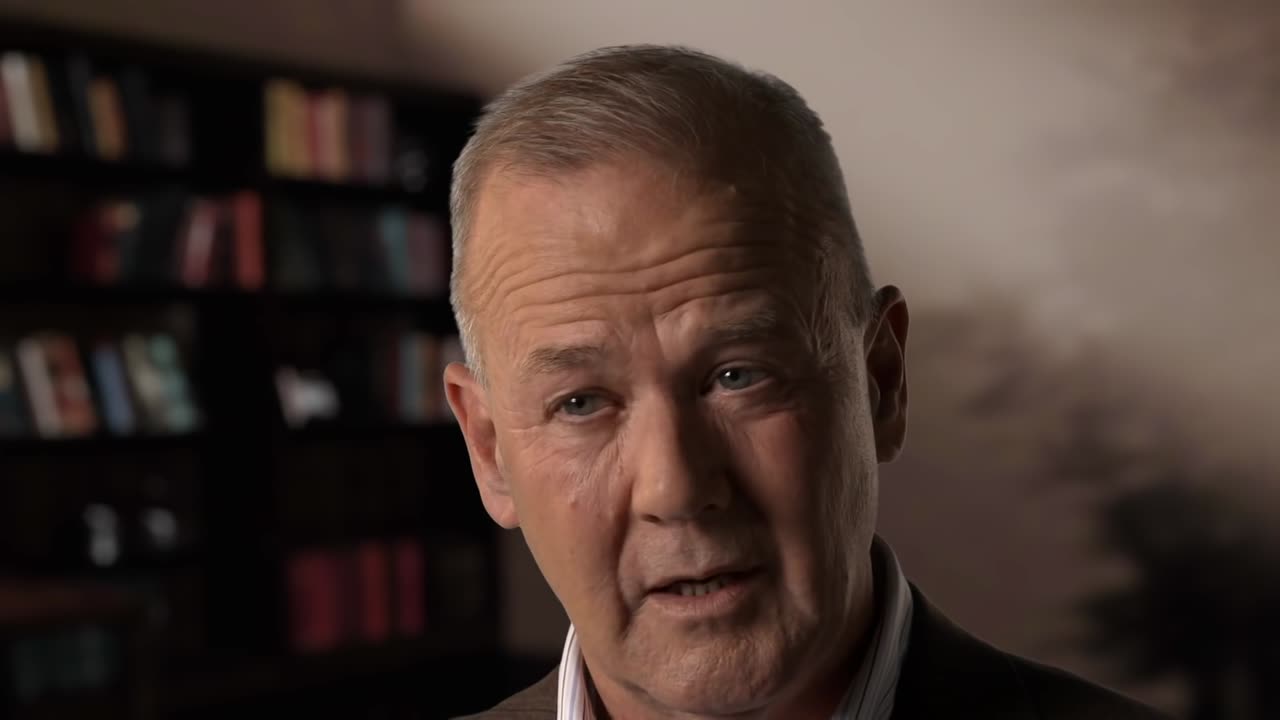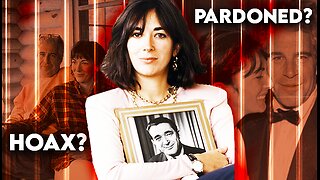Premium Only Content

Going Clear, Part 3 Wright practice of cultic Thought Stopping and Sophistry
Going Clear, Part 3 Wright practice of cultic Thought Stopping and Sophistry
The next point, which is thought stopping. Which is something he touches on in this book and accuses Scientology of, which is the mind control research that was done by Dr. Robert Lifton during the red scare era, and, you know, that has all to do with ideological conditioning where you keep people ideologically in a box by getting them to reject any data from the outside, by labeling it. And so you label it and dismiss it. And Lifton uses the example with the Communist Chinese of any Western thought that comes in, they just dismiss it as bourgeoisie thinking. And it just doesn’t enter the person’s thinking stream. You know.
Effectively, by the time you get into three, four chapters into this book, he is effectively applying that, or getting the reader to apply that, towards Scientology. Because he’s already labeled, you know, the founder and the core of the subject delusional, imaginary, and all these different things to the point where, just the tone and tenor of it throughout the rest of the book becomes, if it’s coming from Scientology, it’s immediately dismissed. He’ll even take things that are said, that he may have gotten from earlier, the earlier New Yorker interview from the Church spokesperson, or gotten from Church publications, or whatever, and just puts them in that light, that, well, this comes from Scientology. And, so that’s just sort of facilely dismissed.
And then, finally, throughout the book, the guy uses a sophistry which depends upon these earlier devices, of, you know, us versus them, credibility determinations, and the thought stopping techniques, where, you know, he’s making, in a narrative, that’s being presented as sort of a chronological and objective narrative, it’s, it’s got these clever fallacious arguments, and conclusions, being reached, throughout, throughout the book.
And then he relies on, the only subjectivity he allows are people that are clearly, never got the subject, and they swear they never got anything out of it, or somebody, and then, that would be Paul Haggis, who clearly, and I’ll show, you know, throughout here, really didn’t, there’s all indication, he really didn’t understand the subject. And Hana Whitfield, who of course was a, you know, she’s just a drama queen. She just, is giving everything in this very dramatic, kind of, you know, shocked, kind of characterization.
And of course he doesn’t disclose her bias. That she in fact, for years after she left Scientology, valued Scientology, after she left the Church she still valued Scientology, so much so that she brought a suit to try to sort, to try to take over the ownership of the technology, and destroy the church in the bargain by suing it for a billion dollars. None of that is covered.
We’re on page 10 and he says Haggis said he wanted to be a writer. That’s what he wanted to do, when he got into Scientology. But if you go to the film, this goes to projection, too. In the book, Larry Wright says Paul Haggis wants to be a writer. In the film, Alex Gibney, what does Paul Haggis tell Alex Gibney? He wanted to be a documentary filmmaker. So, Paul Haggis, I guess will say anything to ingratiate whoever he’s talking to. I mean if I’m a garbage man, he’d probably tell me he wanted to be a garbage man. Right? A writer, to Wright. A documentarian to Gibney.
-
 29:10
29:10
reallygraceful
18 hours ago $1.32 earnedWill GHISLAINE MAXWELL Be a Free Woman Soon?
5.18K52 -
 4:25
4:25
Blackstone Griddles
15 hours agoBetty's Outback Chicken on the Blackstone Griddle
2.07K3 -
 8:48
8:48
Hollywood Exposed
15 hours agoRob Schneider Just ENDED Stephen Colbert’s Career With ONE Brutal Truth
3.51K14 -
 12:14
12:14
Nikko Ortiz
2 days agoMilitary Fails Of The Week
45.6K17 -
 27:37
27:37
pewculture
7 days agoThe I, Robot Gun Looked Cool—Until We Found Out What It Really Was - EP#23 - I, Robot
10.4K8 -
 56:00
56:00
Omar Elattar
9 months agoHow I Made $800M, Got Depressed & Now Spend $2M Per-Year On My Anti-Aging Health Routine!
20.4K2 -
 24:24
24:24
GritsGG
15 hours agoSpectating Random Solos with the Rank 1 Player - Pro Strategies!
10.7K -
 LIVE
LIVE
Lofi Girl
2 years agoSynthwave Radio 🌌 - beats to chill/game to
500 watching -
 9:27
9:27
MattMorseTV
2 days ago $17.85 earnedHe just lost EVERYTHING.
80.4K122 -
 7:10:39
7:10:39
MyronGainesX
1 day agoFormer Fed Explains Serial Killer Israel Keyes, Yahweh ben Yaweh, And The El Rukn Gang, And Police Shooting Reactions!
143K36